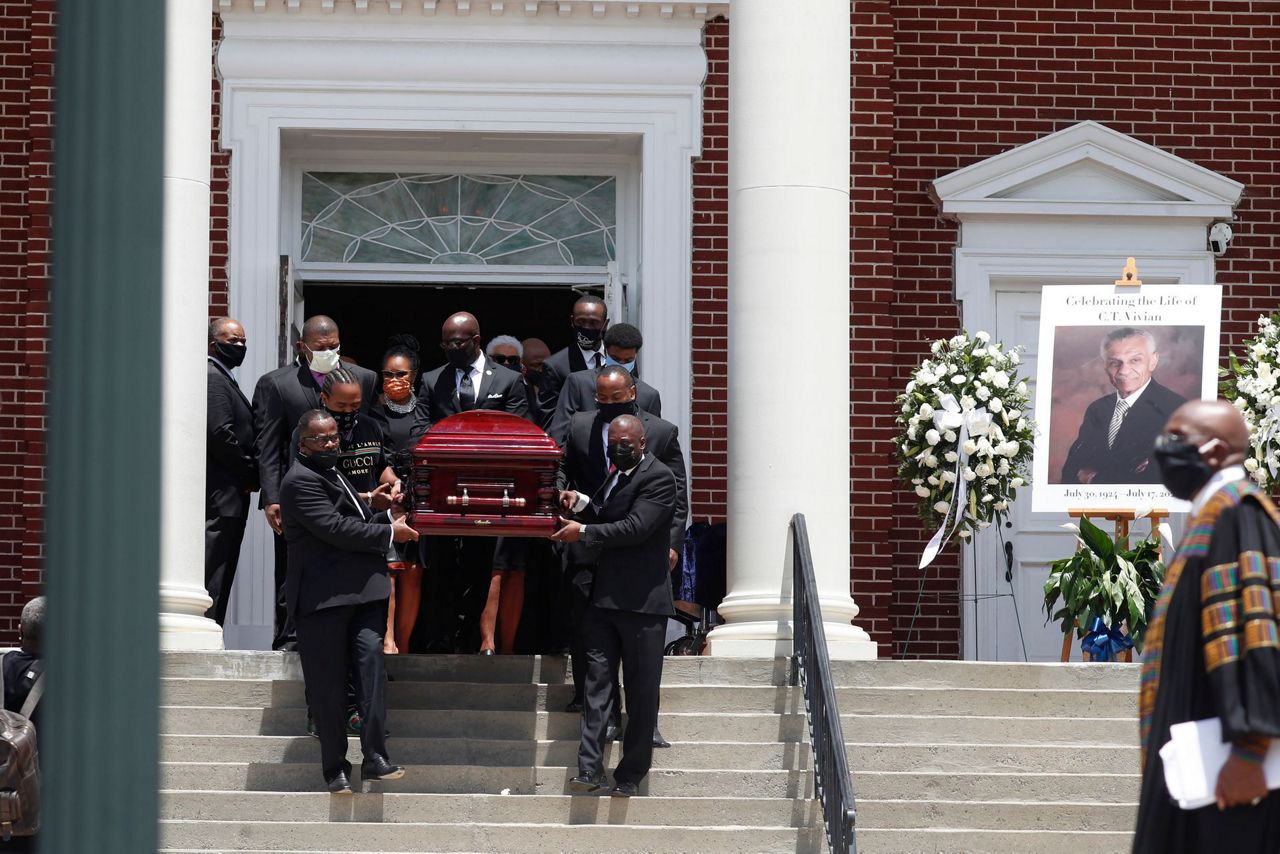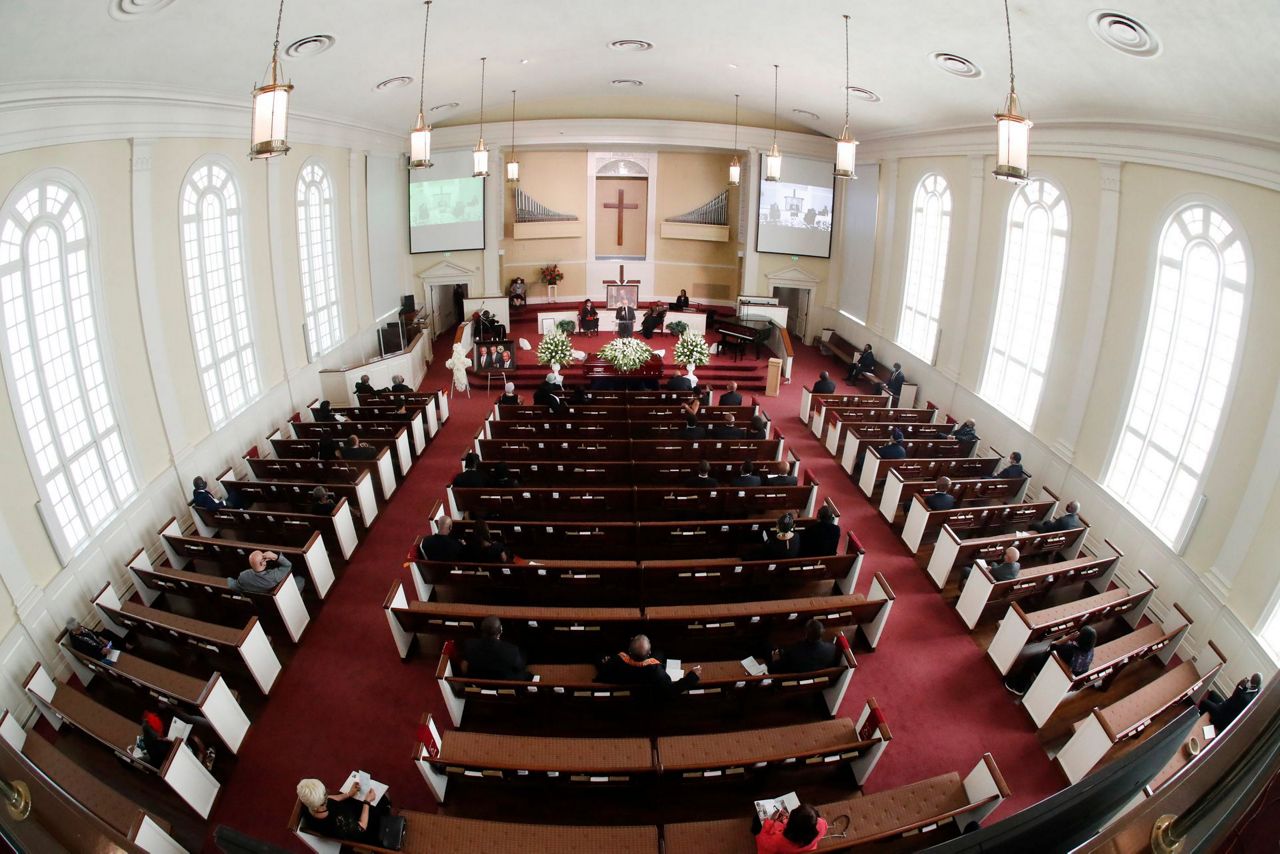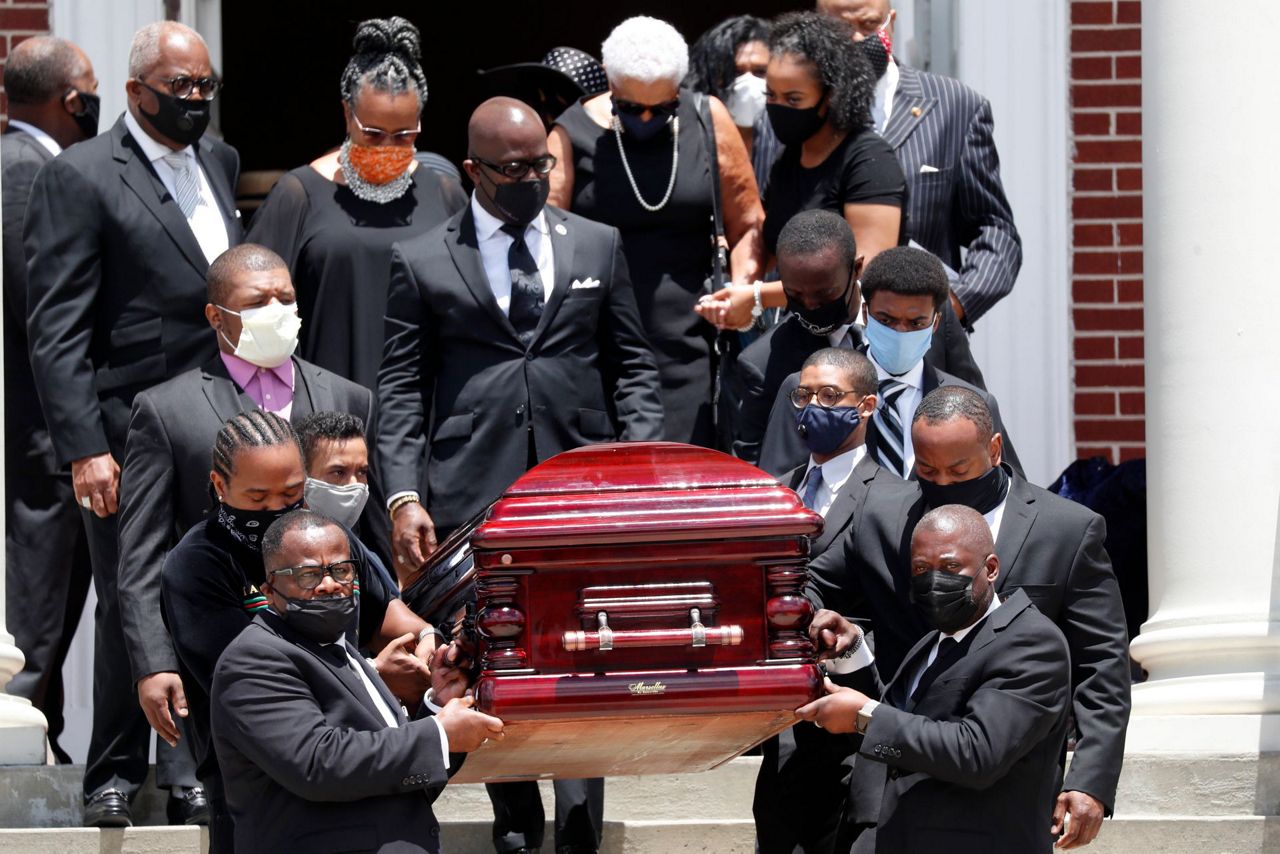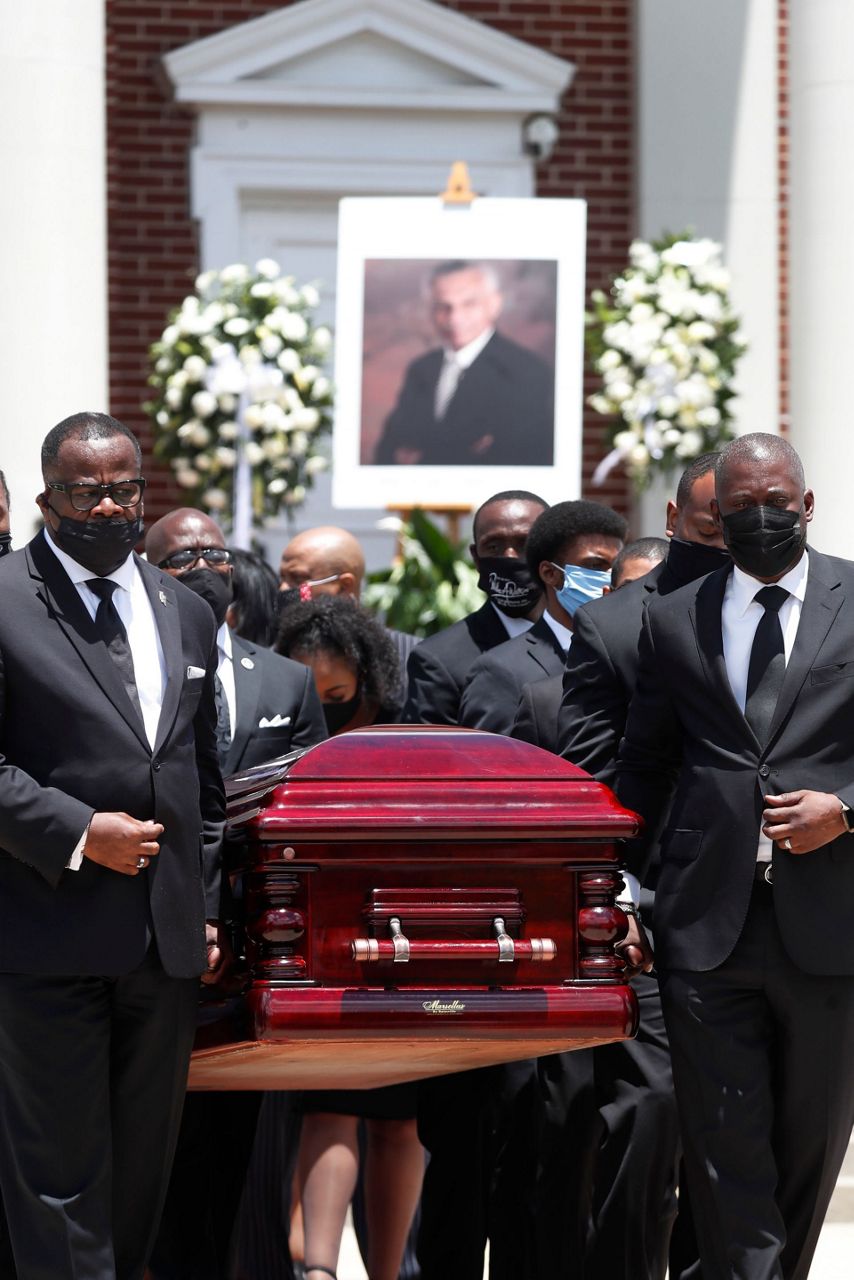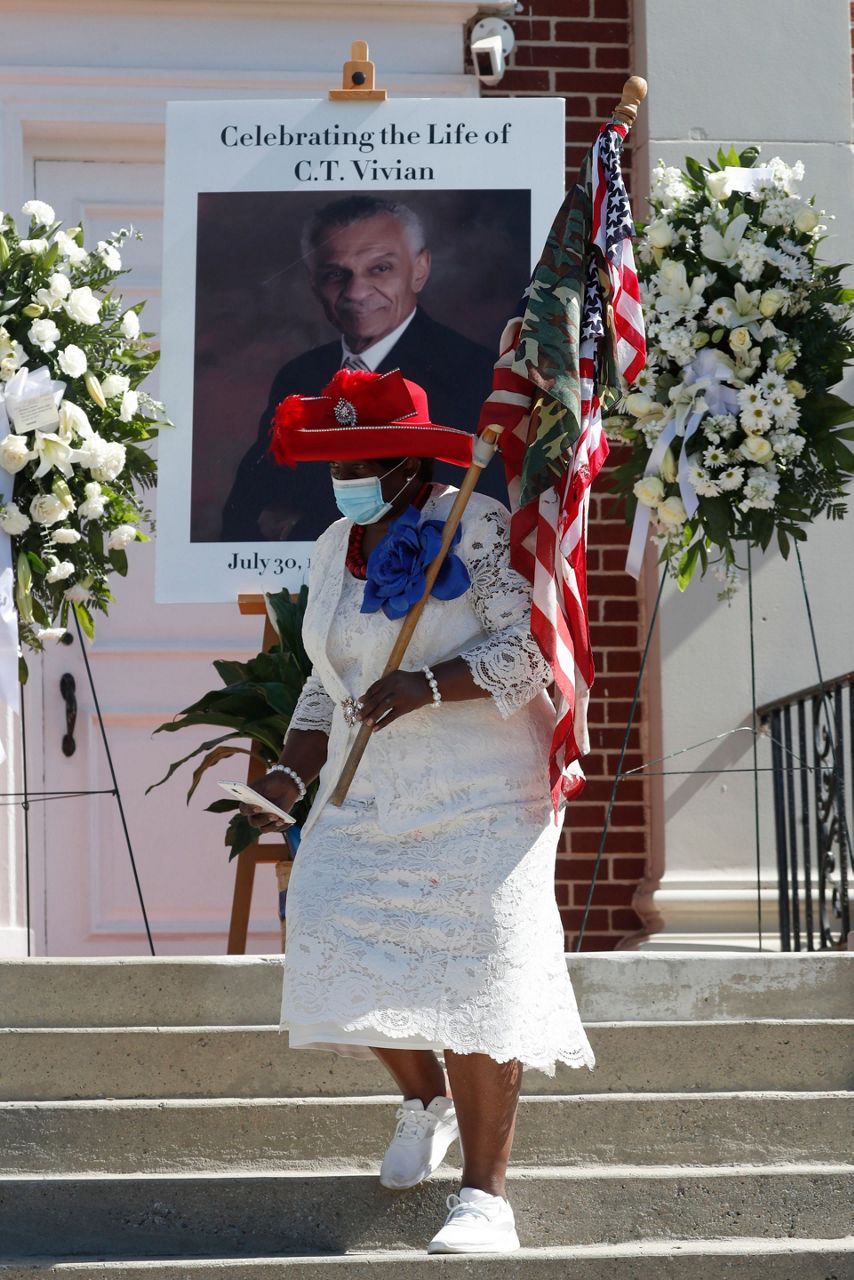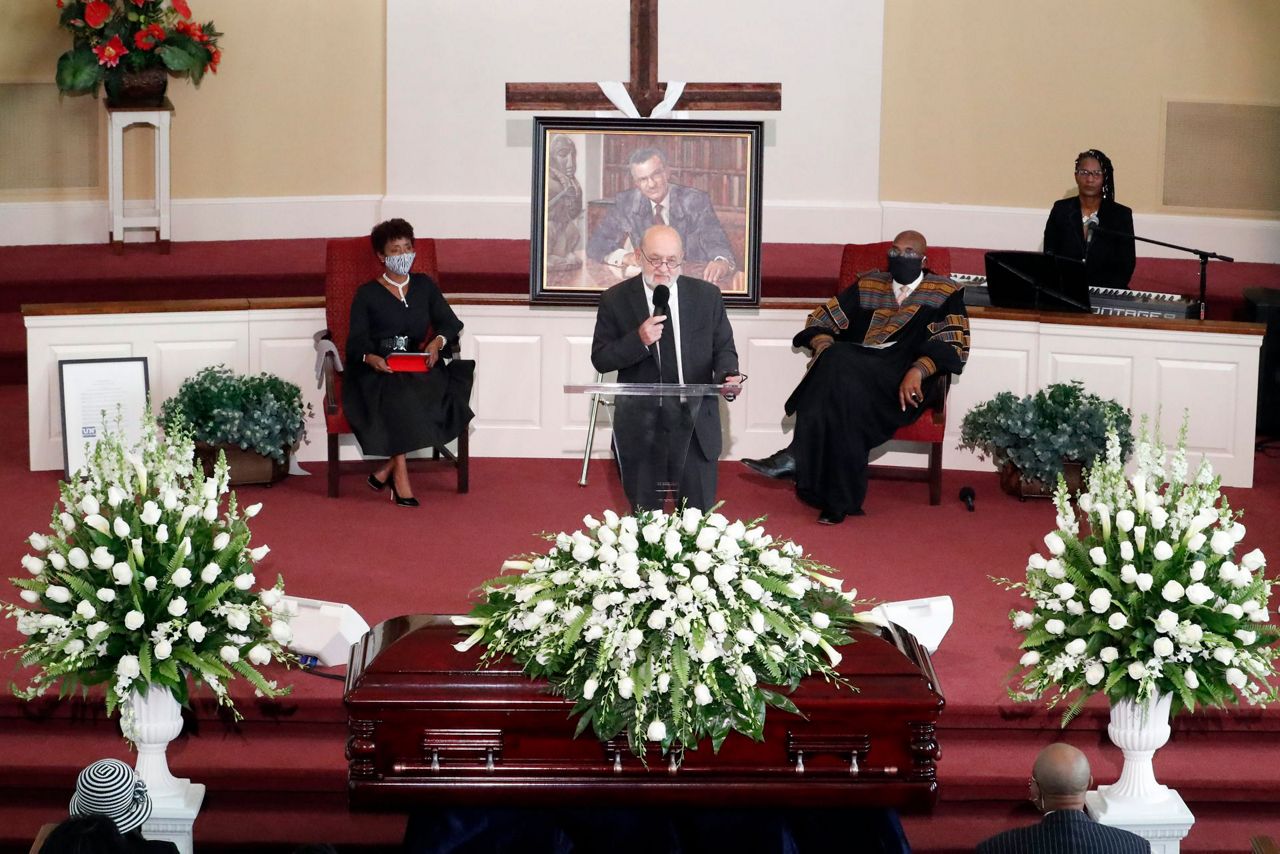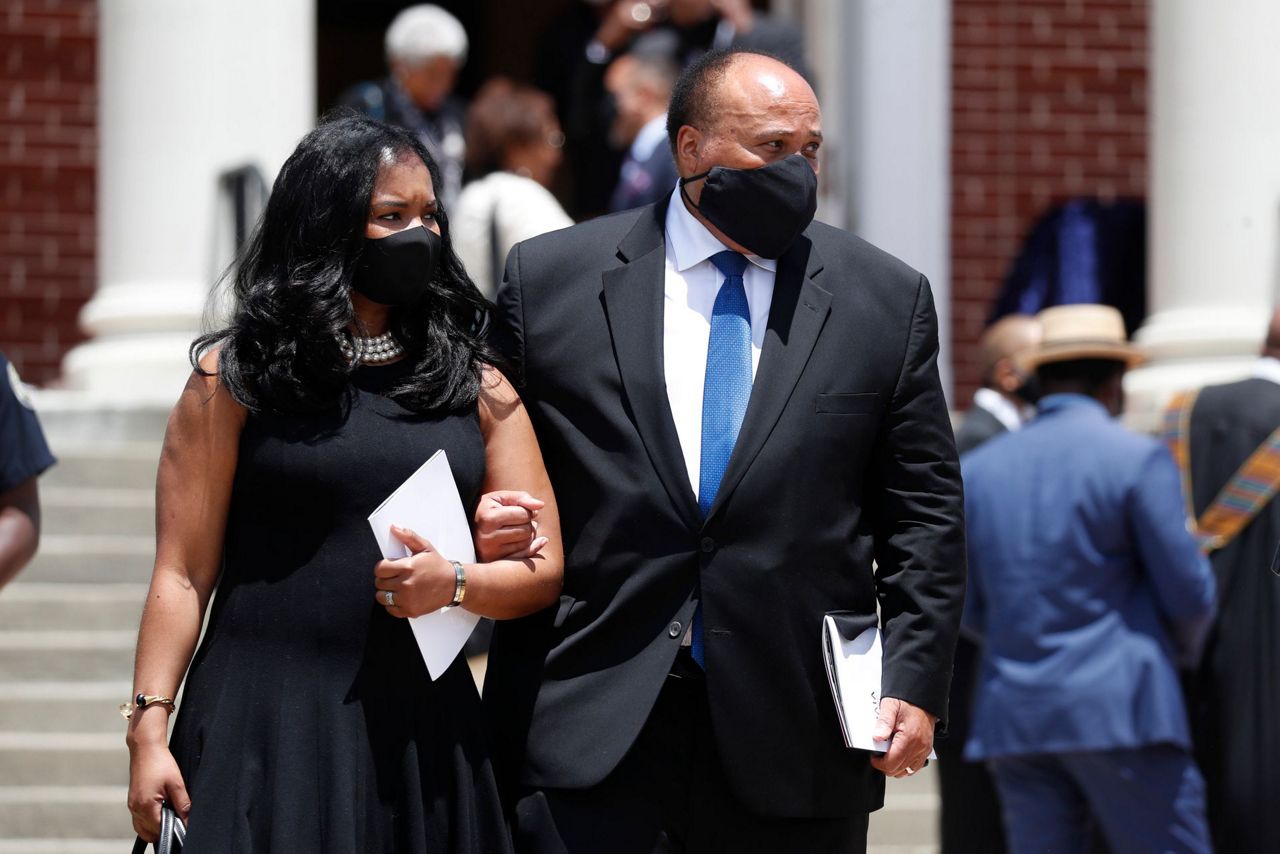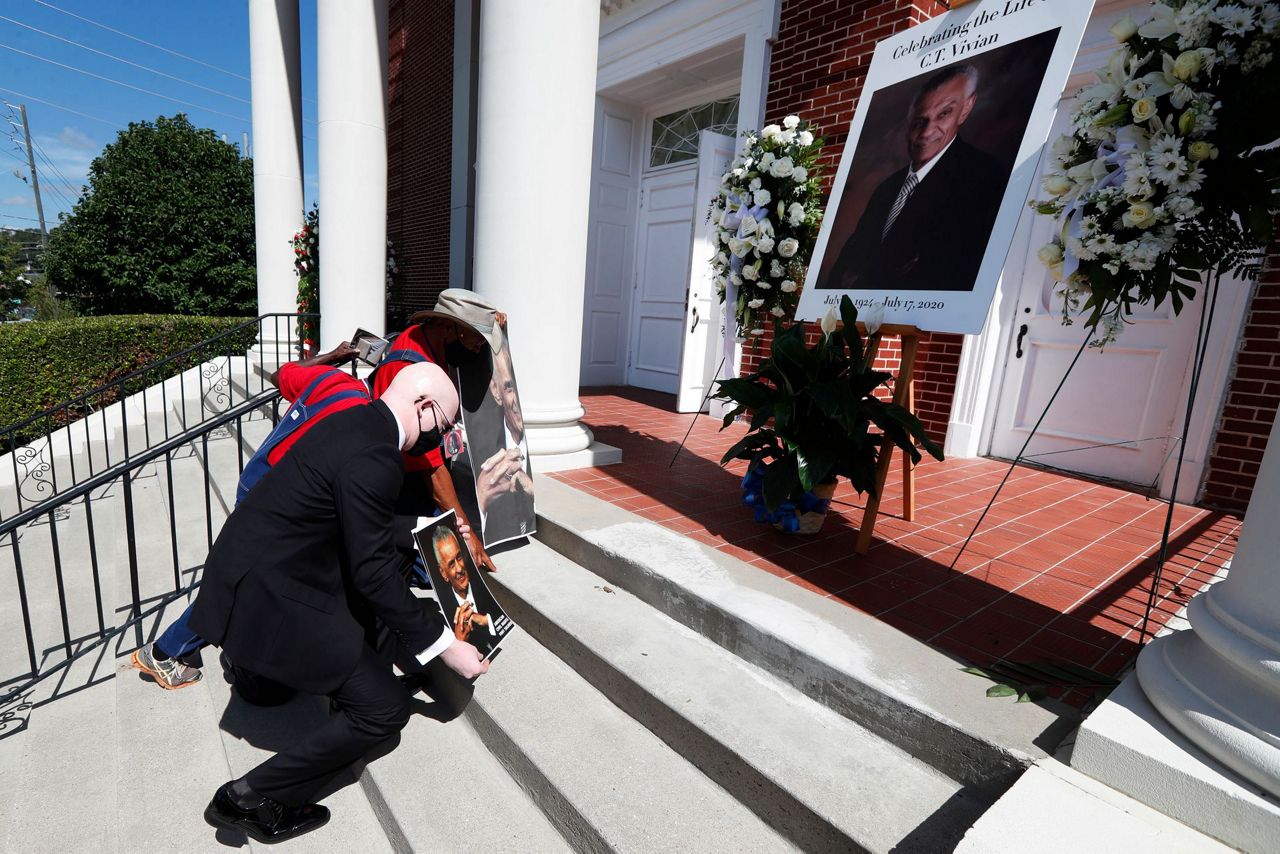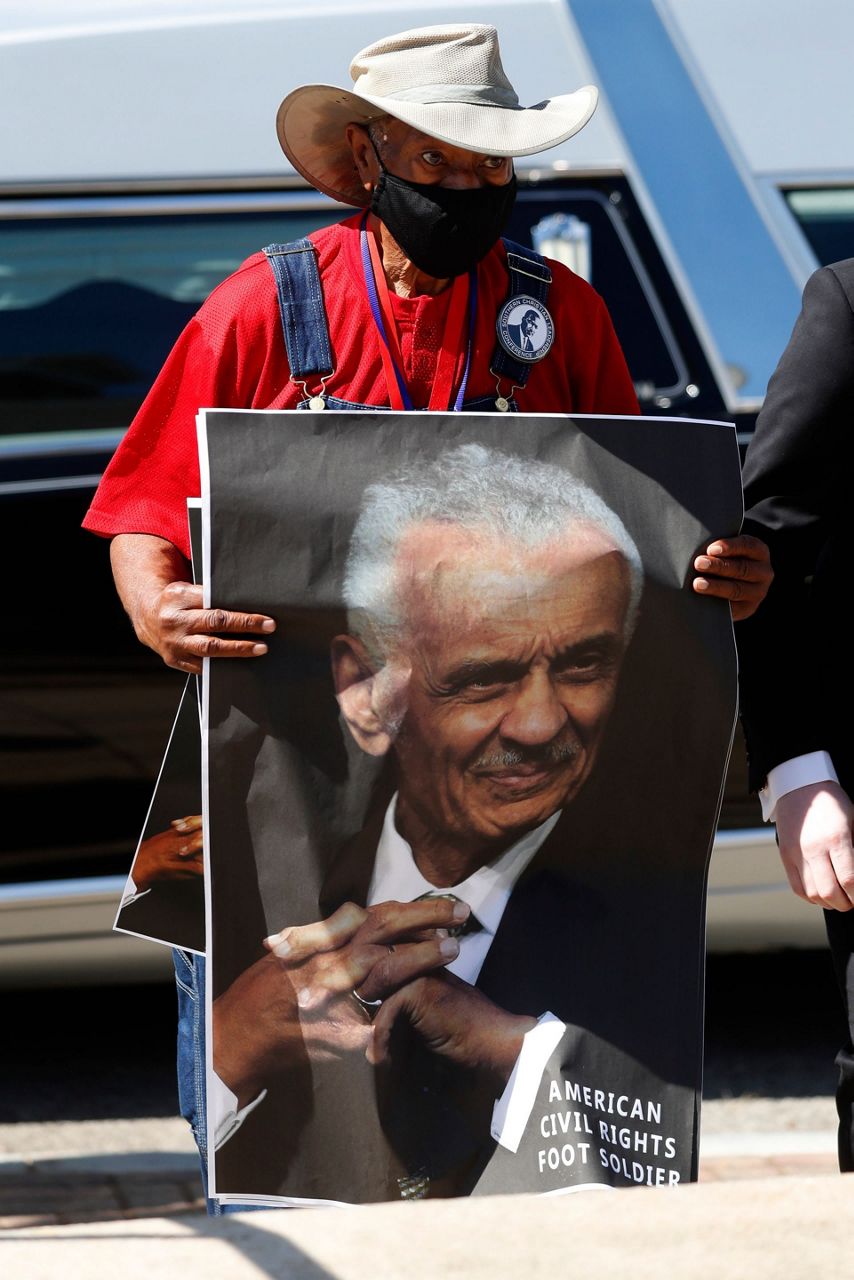ATLANTA (AP) — The nation paid its final respects Thursday to the Rev. C.T. Vivian, a pioneer of the Civil Rights Movement who helped end segregation across the South and left an abiding imprint on U.S. history.
Vivian, a close ally of the Rev. Martin Luther King Jr., was mourned by civil rights icons along with TV personality and author Oprah Winfrey and baseball legend Hank Aaron — both of whom delivered remarks via pre-recorded video — during a funeral at Providence Missionary Baptist Church in Atlanta. Vivian died July 17 at age 95.
“C.T. was truly a remarkable man, a man whose physical courage was exceeded only by his moral courage, whose capacity for love overwhelmed incredible hatreds, whose faith and the power of nonviolence helped forever change our nation," former Vice President Joe Biden said in a video tribute aired during the service.
“In Illinois, and in Tennessee and Florida, and Mississippi — in the north and in the south — CT was there fighting to turn us back toward justice,” Biden added.
Vivian's death came the same day as the passing of another civil rights icon, U.S. Rep. John Lewis, 80. In 1965, Alabama state troopers beat Lewis in Selma, Alabama, helping to galvanize national opposition to racial segregation. Details of Lewis' funeral have yet to be announced.
At Vivian's funeral in Atlanta on Thursday, those in attendance were reminded to remain socially distanced due to the coronavirus pandemic. Many of those who eulogized Vivian described him as a courageous soldier for God and civil rights who always remained humble.
“He didn’t want attention, he didn’t want money, he only wanted to do God’s will and bring out the best in these United States of America and its people regardless of their race, creed, color or national origin," Ambassador Andrew Young said in his videotaped remarks.
Vivian's preaching was described as “an echo from heaven" by civil rights activist Bernard Lafayette.
But it was his work during the Civil Rights Movement and the decades that followed that left an impression on Winfrey. She worked with Vivian on a series of racial seminars that aired on her TV show in the 1990s, she recalled in her video tribute during the funeral.
“In his presence we were always learning more about our country, about ourselves, about what it means to stand for what is right," Winfrey said. “He was a giant for justice.”
More than a decade before lunch-counter protests made headlines during the Civil Rights Movement, Vivian began organizing sit-ins against segregation in Peoria, Illinois, in the 1940s. He later joined forces with King and organized the Freedom Rides across the South to halt segregation.
Vivian was passionate about voting rights. In 1965, he led dozens of marchers to a courthouse in Selma, Alabama, and confronted the local sheriff on the courthouse steps, telling him the marchers should be allowed to register to vote. The sheriff responded by punching Vivian in the head. Vivian later discussed the experience in a video that includes film footage of the confrontation and attack.
“The number of times he faced down being drowned, being beaten, being reviled only to stand up straight as a ramrod, bloodied but unbent, and declare the truth he saw so clearly: you can not turn your back on the idea of justice,” Biden said.
Vivian was honored by former President Barack Obama with the Presidential Medal of Freedom in 2013.
On Wednesday, the eve of his funeral, a horse-drawn carriage took his casket from the Georgia Capitol, where a memorial service was held, to King’s tomb in Atlanta.
At Thursday's funeral, Aaron said, “I got to love him really, not know him."
“I loved him for what he stood for and what he did, the things that he did," Aaron said in videotaped remarks shown during the service.
Several friends said Vivian's legacy will live on in the nation's continuing struggle for civil rights for all.
“For me, C.T. was a dream keeper, always holding fast for dreams of a better world," said Vivian's longtime friend David McCord.
Copyright 2020 The Associated Press. All rights reserved. This material may not be published, broadcast, rewritten or redistributed without permission.



